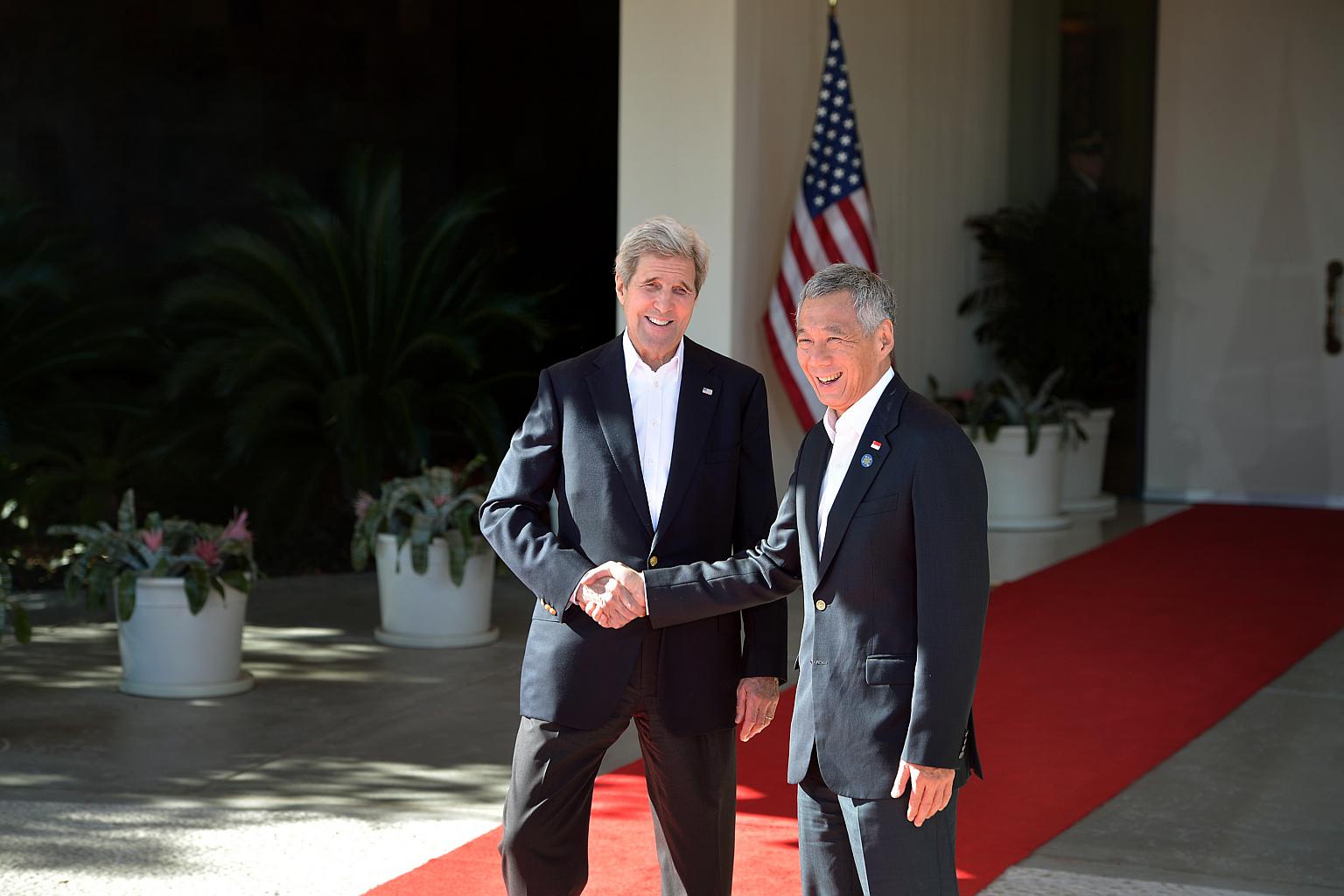PM Lee hopeful of TPP deal completion, but concerned about anti-trade rhetoric
Sign up now: Get ST's newsletters delivered to your inbox

PM Lee Hsien Loong (right) with US Secretary of State John Kerry during the US-Asean leaders summit.
ST PHOTO: KUA CHEE SIONG
Follow topic:
SUNNYLANDS, CALIFORNIA - Singapore Prime Minister Lee Hsien Loong said he remains hopeful that a 12-nation free trade agreement known as the Trans-Pacific Partnership (TPP) can be implemented this year, even as he voiced concern about the anti-trade rhetoric that has emerged from the US election campaign trail.
Speaking to the Singapore media in California on Tuesday (Feb 16) US time after the conclusion of the US-Asean Leaders Summit, Mr Lee said the rhetoric from the Republicans and Democrats battling in the nominating contests could make passage of the deal through Congress more difficult as it "reflects a certain mood on the ground which is not enthusiastic about trade".
He said: "At the same time, it sours the mood on the ground, because by working up these sentiments, the candidates make it harder later, if in fact they want to sign it, to change their position... People would have been entrenched in their attitudes.
"So it is always a worry and it is not quite done but we hope very much that President Obama will be able to clear this and not leave it as unfinished business for his successor."
The TPP - which includes Singapore and the United States - has been a source of much controversy in the US of late and nearly every candidate currently vying to replace President Barack Obama has opposed the deal. Those who have not explicitly condemned the deal have chosen to keep mum about it.
Many Americans believe the deal would lower wages and hurt jobs in the US. The antipathy was also evident outside the US-Asean summit where a cluster of anti-TPP protesters had gathered.
Mr Lee said he hoped that the strong positions taken on the campaign trail would be moderated once a new president is elected.
"I mean if you look at the history of it, on the campaign trail, often you have a candidate or many candidates who take strident positions against China but when they become president, all of them have to look at the problem seriously, reality sinks home and almost every president since Nixon has concluded that he has a stable, sound relationship with China. So we hope that will be the case for the TPP."
The first ever summit of Asean leaders hosted by the US concluded with a group photo and a session on transnational challenges. The group also issued a joint statement outlining key principles that will guide Asean-US cooperation.
An anticipated strong statement from the US about China's activities in the South China Sea did not materialise - or was made only behind closed doors - but four of the 10 principles in the joint statement made a reference to upholding international law and a rules-based international order.
Asked how China would perceive the special summit, Mr Lee said that while the South China Sea was discussed, the summit would not move the needle much on the situation.
"I do not see this as determining the situation in the South China Sea. Asean values its relationship in America and this is an opportunity for us to meet. Naturally we will talk about security issues like the South China Sea.
"But at the same time, we talk to the Chinese as well and we have meetings with the Chinese. We discuss issues which concern us. South China Sea and other issues as well," he added.

